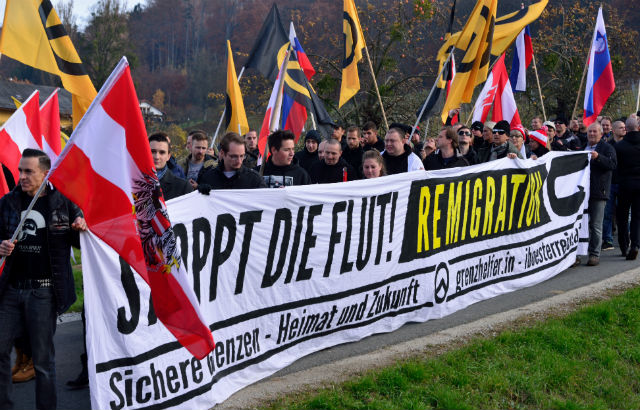
Individuals who wrongly think or claim to possess information about politics are more likely to support a right-wing populist party, instead of supporting other parties (including left-wing populists) or abstaining, according to a new study.
The research, published in West European Politics, explored the extent to which populist party supporters (both right-wing and left-wing) across Europe effectively have or lack political knowledge, but also the extent to which these individuals are correctly or incorrectly informed.
A snapshot of European politics
Data was drawn from nine European democracies in 2015 (France, Germany, Greece, Italy, Poland, Spain, Switzerland, Sweden and the United Kingdom) using quota samples that match national population statistics concerning gender, region, age and educational attainment.
Unlike most previous studies, the results highlight the value of a threefold distinction between politically informed, misinformed and uninformed individuals. Despite an increase in interest around populism, there has been no research examining precisely how political (mis)information relates to populist support. The work demonstrates the complexity of gauging levels of information; possessing factual information versus possessing information which contains factual inaccuracies.
Gauging levels of misinformation
The results of the study show that populist party supporters are not evidently different from supporters of other parties in terms of the possession of political knowledge (i.e. correct information).
Both populist and non-populist party supporters show higher average levels of political information (and interest) than people who plan to abstain in elections. This indicates that, far from being a sign of ignorance or an expression of hollow protest, the support for a populist party may well signify a purposeful choice by politically informed, interested citizens.
Right-wing populist party supporters only stand out where it concerns their higher levels of misinformation (i.e. incorrect information).
Dr Stijn van Kessel, Senior Lecturer in European Politics at Queen Mary said: "Whilst this remains speculative and should be explored in further research, our findings may indicate that populist right-wing party supporters are particularly susceptible to misinformation spread by politicians and journalists. This is notable, given that right-wing populist politicians are often said to be prone to moralistic black-and-white portrayals of social reality and the spread of conspiracy theories."
Dr Javier Sajuria, Senior Lecturer in Politics at Queen Mary said: "Whereas we are being constantly told about the perils of misinformation, the reality is that we lack the research tools to assess how misinformed people are. We have used traditional measures of political knowledge and analysed how the responses from those questions can shed light on people's beliefs. We also find that misinformation is, for most people, a good predictor of political participation. These findings raise the question of whether the relevant thing is to be informed or to believe that one is informed."
Dr Steven Van Hauwaert, Lecturer at the University of Surrey said: "Much of the public debate, particularly related to populism, emphasises the role of fake news, post-truth politics and misinformation. The question follows to what extent populist supporters adhere to these notions. This important question forms the underlying rationale for this study. While we only provide initial answers, we hope our study can spark more research generating an increased understanding of the role of misinformation in politics and elections."






